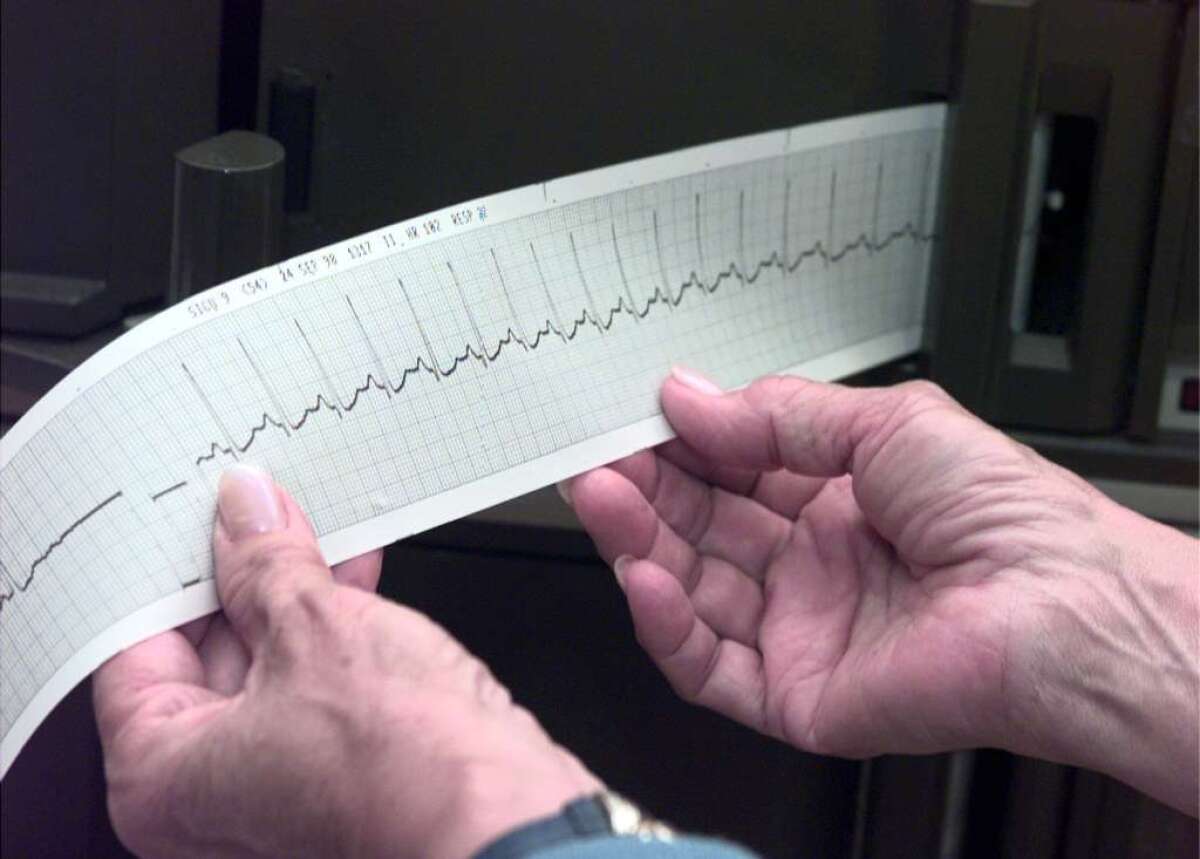Your heart is probably much older than you think, the CDC warns

How old is your heart? Probably older than you think, according to a new CDC study that calculates the average “heart age” of American adults.
You may feel young at heart, but with apologies to Frank Sinatra, that’s probably a fairy tale. A new report from the Centers for Disease Control and Prevention says the average American man has a heart that’s 7.8 years “older” than his chronological age; for women, the comparable “heart age” is 5.4 years higher than her calendar age.
If the idea of a heart age sounds like a gimmick, that’s because it is. The concept was developed by public health experts who work on the venerable Framingham Heart Study as a way to help regular folks understand their risk of having a heart attack, stroke, chest pain, peripheral artery disease or another heart-related condition, including death.
And it works. A clinical trial in Europe found that people who were told their heart age improved their heart health more than people who were told their absolute risk of developing cardiovascular disease. In that trial, those who learned their heart age were able to reduce it by 1.5 years over the course of a year, compared with a reduction of only 0.3 years for those who got the traditional risk information.
Hearts in the United States need all the help they can get. Nearly 800,000 Americans die of heart-related conditions each year, and their illnesses cost about $320 billion annually, according to the American Heart Assn.
So researchers from the CDC’s Division for Heart Disease and Stroke Prevention decided to estimate the heart age of Americans adults and see how those ages differed according to where they live, how much education and money they have, and their racial and ethnic backgrounds.
They used data from the CDC’s Behavioral Risk Factor Surveillance System, which includes questions about cardiovascular disease every other year. Participants in the survey report their age, smoking status, body mass index, and whether they have diabetes or take medication to control their blood pressure.
The heart age calculator also requires a measure for a person’s systolic blood pressure, which is the pressure in the arteries when the heart beats. The CDC researchers estimated this number based on other variables that were known.
Altogether, the researchers calculated the heart age of 236,101 men and 342,424 women between the ages of 30 and 74. None of them had heart disease or had suffered a heart attack or stroke.
After making statistical adjustments to match the age distribution of the U.S. population, the researchers calculated that the average chronological age of men in the study was 47.8 years, but their average heart age was 55.6 years. For the women, the average chronological age was 47.9 years and the average heart age was 53.3 years.
Put another way, 48.8% of men and 38.5% of women -- an estimated 69.1 million Americans total -- had a heart age that was at least 5 years older than their calendar age, according to the CDC report.
The older a person was, the bigger the gap between their chronological age and their heart age, the researchers wrote. However, the gap shrank as education and household income rose.
The heart age gap was smallest in Utah, where men’s hearts averaged 5.8 excess years and women’s hearts averaged 2.8 additional years. At the other end of the spectrum was Mississippi, where the average excess heart age was 10.1 years for men and 9.1 years for women.
In California, the average excess heart age was 5.2 years, and 35.9% of adults had hearts deemed at least 5 years too old. Women (whose average age gap was 3.9 years) fared better than men (whose average age gap was 6.5 years).
Nationwide, African Americans had the highest heart ages, averaging 58.7 years for men and 58.9 for women. They were followed by Latinos (55.7 years for men and 53.3 for women), whites (55.3 years for men and 52.5 years for women) and people of other racial and ethnic groups (54.7 years for men and 52.3 years for women).
After taking age, education and income into account, the researchers calculated that the average heart age for black men was 3 years higher than for white men and 4 years higher than for Latinos. Among women, the average heart age for blacks was 5 years higher than for whites and 7 years higher than for Latinas.
The results were published Tuesday in the CDC’s Morbidity and Mortality Weekly Report.
Though you can’t rewind your chronological age, you can reduce your heart age. For example, the researchers wrote, a 50-year-old man who smokes, has high blood pressure and is right on the border between being overweight and obese would have a heart age of 72. However, if he quits smoking and takes medication to get his blood pressure down to 120 mm Hg, he could shave 19 years off his heart age and bring it down to 53.
A woman with the same attributes could reduce her heart age from 74 to 51.
To calculate your heart age, try this online calculator. If the results are scary, check out this chart to see how you can get that number closer to your chronological age.
Follow me on Twitter @LATkarenkaplan and “like” Los Angeles Times Science & Health on Facebook.
Hoy: Léa esta historia en español
ALSO:
A 6-foot-long ‘sea scorpion swam and scuttled in ancient seas
Amgen and Novartis are partnering on a drug that could prevent Alzheimer’s
When you mix classic movie lines with nerd humor, you get #scienceamoviequote







